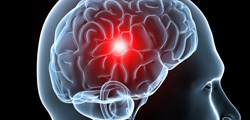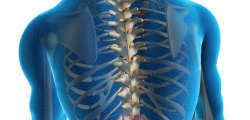Traumatic Brain Injury (TBI)
Brain injury occurs usually when there is a sudden trauma to the head e.g. a sporting accident, vehicle accident or violent assault. TBI can also occur due to a tumor or haemorrhage. The symptoms of a brain injury are vast and can include movement problems, cognitive and speech problems, and also emotional changes. Usually several health professionals, as well as a Physiotherapist, are involved with the person e.g. Consultant, Speech Therapist, Occupational Therapist, Social Worker and often a Case Manager. It is vital that good communication is established between all professions involved in order to provide the best care and meet the needs of the individual.
As each person with a TBI is different a full assessment of their problems is carried out. Treatment will involve re-aligning of muscles and joints through specific handling techniques in order to provide the correct sensory input. This will allow the individual to experience normal movement and join in the movement actively for themselves. Treatment plans are tailored to the person's cognitive abilities and level of support they possess. It is often useful to work closely with family and careers in order to ensure a consistent approach of handling and positioning is maintained throughout the 24 hour period.
To contact us for an appointment or regarding any queries please call 07816 768456 or email info@dawnburrow-neurologicalphysiotherapyservice.co.uk



Services
What we treat
- Stroke (CVA)
- Spinal Cord Injury (SCI)
- Parkinson’s disease (PD)
- Multiple Sclerosis (MS)
- Traumatic Brain Injury (TBI)
- Vestibular Problems
- Balance Problems
- Bell’s Palsy
- Elderly rehabilitation and falls prevention
Areas we cover
We cover the following locations:Witney, Carterton, Bampton, Curbridge, Ducklington, North Leigh, South Leigh, Clanfield, Burford, Kidlington, Woodstock, Standlake, Long Hanborough, Bladon, Hailey, Leafield, Finstock, Stonesfield, Shipton under Wychwood, Eynsham, Cassington, Farmoor, Cumnor, Shilton, Minster Lovell, Charlbury, Freeland, OX28, OX29, OX18
Please contact us to find out if we cover your area.




